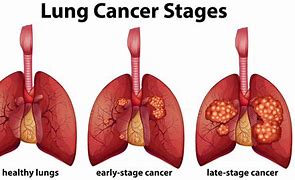Lung cancer is a serious and potentially life-threatening disease that affects millions of people worldwide. Detecting lung cancer at an early stage can significantly improve the chances of successful treatment and long-term survival. In this article, we will explore the symptoms of stage 1 lung cancer, the earliest stage at which the disease can be diagnosed. It is important to note that symptoms can vary from person to person, and some individuals may not experience any symptoms at all. Nevertheless, recognizing the potential warning signs can help individuals seek medical attention promptly and increase the likelihood of a positive outcome.
Persistent Cough
One of the most common symptoms of lung cancer, including stage 1, is a persistent cough that lasts for more than two or three weeks. This cough may be characterized by a hoarse or raspy quality and can be dry or accompanied by the production of phlegm or blood. If you have a persistent cough that does not improve with time or treatment, it is essential to consult a healthcare professional.
Chest Pain
Individuals with stage 1 lung cancer may experience chest pain or discomfort. This pain can manifest as a dull ache or a sharp, stabbing sensation in the chest, back, or shoulders. The pain may worsen with deep breathing, coughing, or laughing. It is important not to ignore any persistent or unexplained chest pain and to seek medical evaluation.
Shortness of Breath
Another common symptom of lung cancer is shortness of breath, also known as dyspnea. This can occur due to the presence of a tumor that obstructs the airways or causes inflammation in the lungs. People with stage 1 lung cancer may find it difficult to catch their breath, especially during physical activity or exertion. If you notice a persistent and unexplained shortness of breath, it is crucial to consult a healthcare professional.
Unexplained Weight Loss
Unintentional weight loss can be a warning sign of various underlying health conditions, including lung cancer. Individuals with stage 1 lung cancer may experience a significant and unexplained loss of appetite, leading to weight loss. If you have noticed a sudden and unintentional decline in weight, it is advisable to consult a healthcare professional for evaluation.
Fatigue and Weakness
Feeling unusually tired or experiencing a persistent lack of energy can be indicative of lung cancer, even at an early stage. Fatigue can result from the body’s immune response to cancer cells or the tumor’s impact on the body’s metabolism. If you consistently feel exhausted, weak, or unable to perform daily activities, it is essential to discuss these symptoms with a healthcare professional.
Respiratory Infections
Recurrent respiratory infections, such as bronchitis or pneumonia, can sometimes be associated with stage 1 lung cancer. If you find yourself frequently battling respiratory infections or notice that these infections take longer to resolve than usual, it is advisable to seek medical attention for further evaluation.
Conclusion
Early detection of lung cancer is crucial for successful treatment outcomes. While the symptoms of stage 1 lung cancer can be subtle or easily mistaken for other respiratory conditions, it is important to be vigilant and seek medical evaluation if you experience persistent symptoms such as a chronic cough, chest pain, shortness of breath, unexplained weight loss, fatigue, weakness, or recurring respiratory infections. Remember, these symptoms may not necessarily indicate lung cancer, but they should be evaluated by a healthcare professional to determine the underlying cause. By being proactive and attentive to your health, you can increase the chances of detecting lung cancer at an early stage, when treatment options are most effective.

